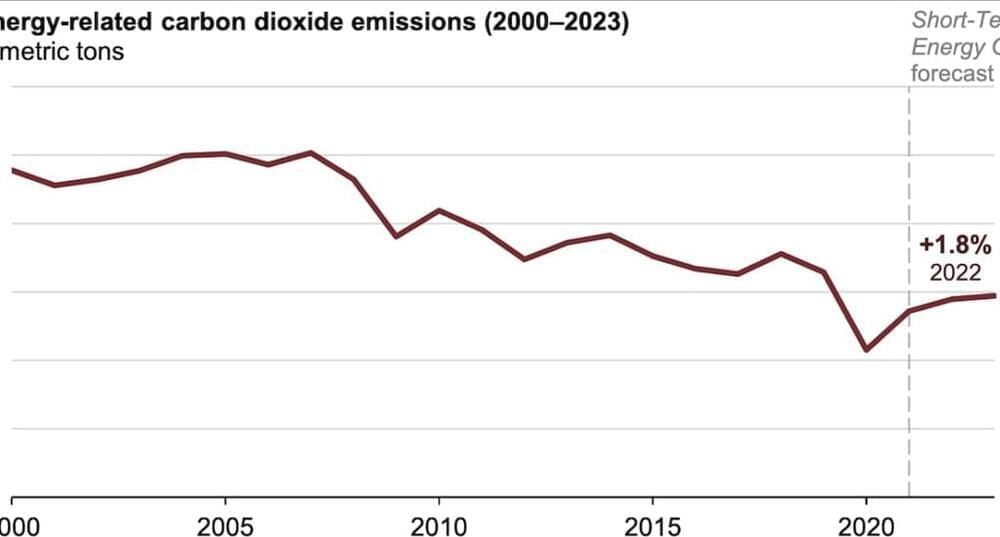Jan 21, 2022
U.S. Energy-Related Carbon Dioxide Emissions Expected to Increase in 2022 & 2023
Posted by Shubham Ghosh Roy in categories: biotech/medical, economics, energy
In our latest Short-Term Energy Outlook, we forecast that U.S. energy-related carbon dioxide (CO2) emissions will increase in both 2022 and 2023 but remain below 2019 levels. In 2020, U.S. energy-related CO2 emissions decreased by 11% as energy use declined during the onset of the COVID-19 pandemic. As the U.S. economy began to return to pre-COVID activity, CO2 emissions increased by an estimated 6% in 2021. We expect increasing economic activity, along with other factors, will result in those emissions increasing by another 2% in 2022 and remaining virtually flat in 2023.
We forecast that, by 2023, U.S. energy-related CO2 emissions will total 4,971 million metric tons (MMmt) — still 3% below the 5,144 MMmt of CO2 emissions generated in 2019 and 17% below the peak level of 6,016 MMmt in 2007.
U.S. petroleum-related CO2 emissions increased 8% in 2021, and we forecast that they will increase by another 5% in 2022 and an additional 1% in 2023 as travel activity continues to increase. We forecast that in 2022, the number of vehicle miles traveled in the United States, which affects motor gasoline and diesel consumption, will return to 2019 levels and that air travel will increase by 4% over 2019.


















